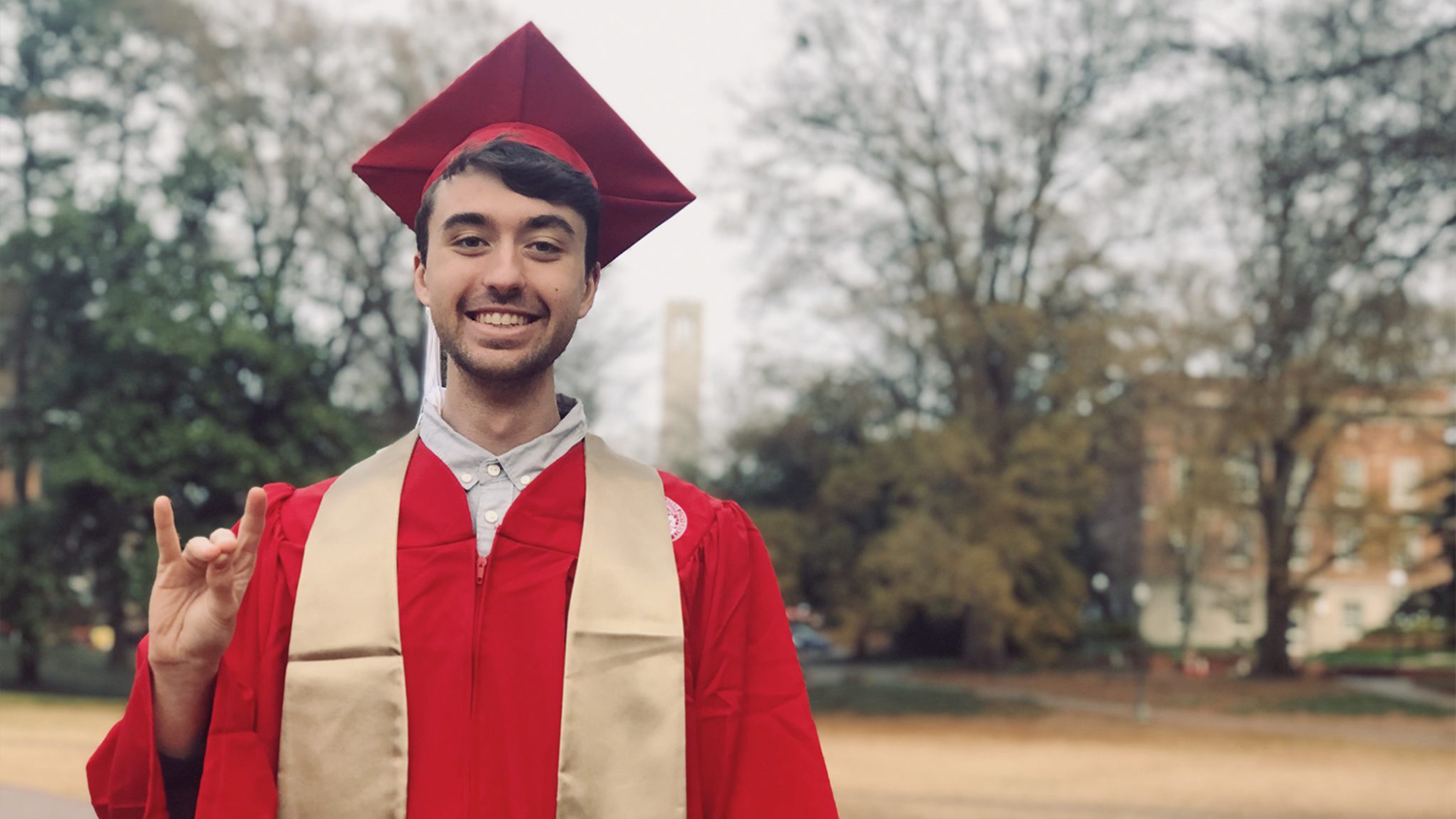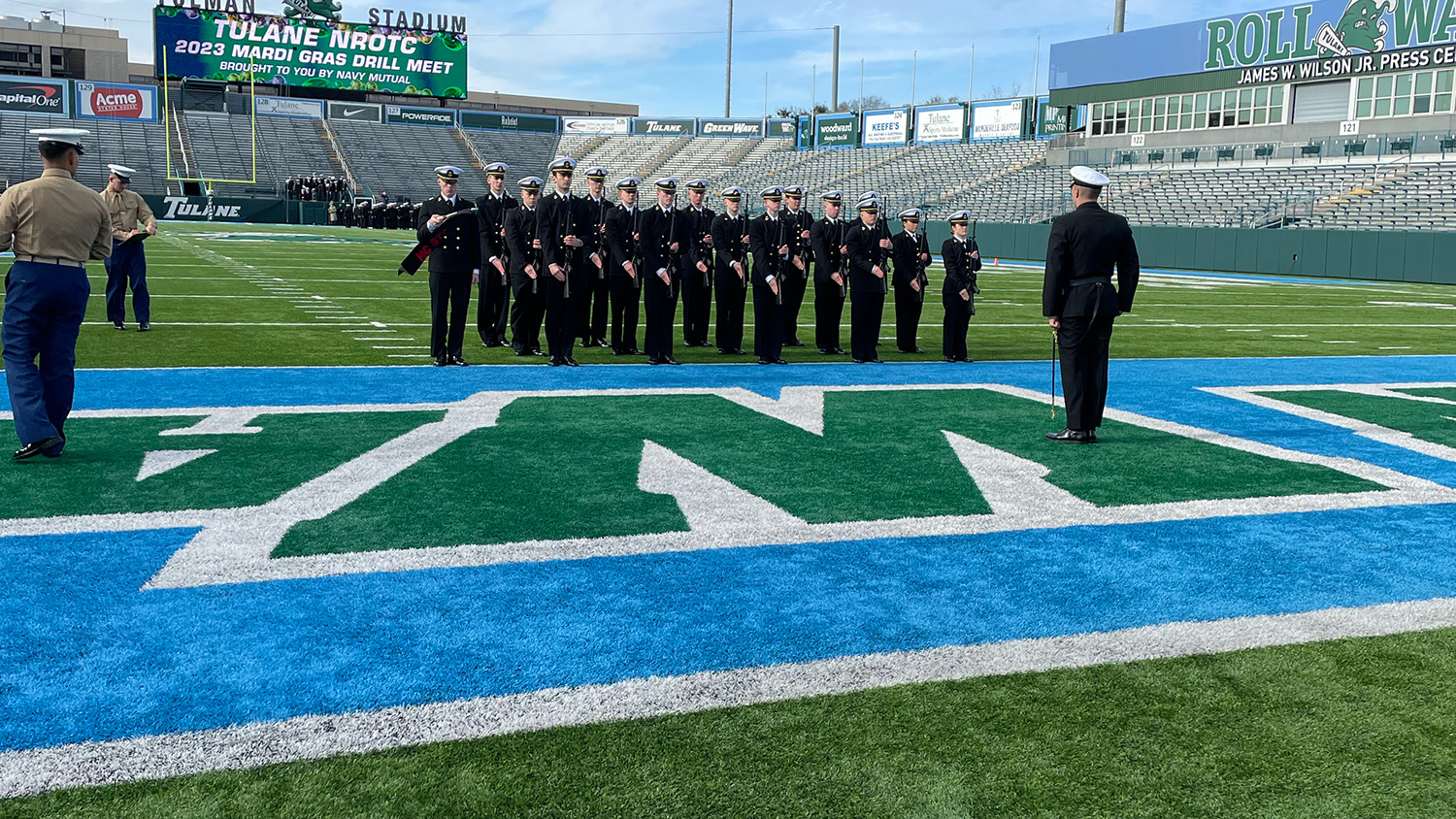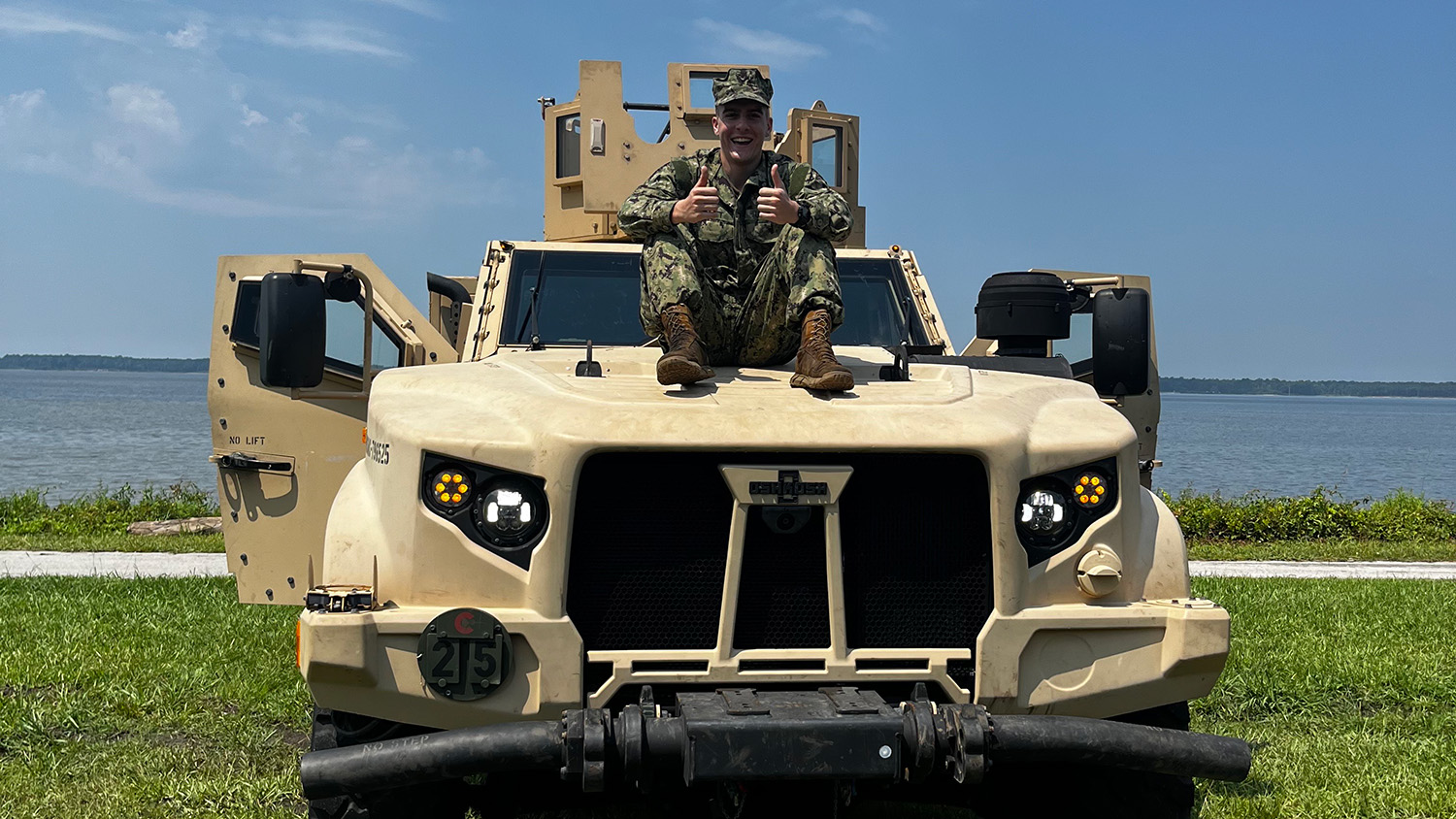Colton Botta Earns Prestigious Marshall Scholarship
The 2019 graduate is one of 46 recipients of the 2021 Marshall Scholarships, a fully funded merit-based award for Americans of high ability to pursue postgraduate study in the United Kingdom.

By Ashley Morris, University Fellowships Office Coordinator
Colton Botta, a 2019 graduate and class valedictorian who majored in computer science while minoring in business entrepreneurship, was announced as one of 46 recipients of the 2021 Marshall Scholarships, a fully funded merit-based award for Americans of high ability to pursue postgraduate study in the United Kingdom. The prestigious one- and two-year awards commemorate the Marshall Plan and just celebrated its 66th anniversary by welcoming its most diverse class ever.
Botta is NC State’s fourth Marshall Scholar and was one of two applicants endorsed by NC State’s University Fellowships Office (UFO) after interviewing with the campus selection committee. While at NC State, the Seven Fields, Pa., native completed the University Honors Program, was heavily involved with Undergraduate Research under the guidance of Christopher Parnin, an assistant professor of computer science. Additionally, he was just the fourth Wolfpack student to be named a Rhodes Scholarship finalist, and the first for the university in over a decade.
Now, as a Marshall Scholarship recipient, Botta will join over 2,000 Marshall Scholars who have been selected on the criteria of academic merit, leadership potential and ambassadorial potential. During his two years in the UK, he will study for a M.S. at the University of Edinburgh in cognitive science and a M.A. at University College London in education and technology. He plans to use his dual degrees as the foundation for a Ph.D. in computer science education, after which he will seek a faculty position in educational technology research.
Turning Passion into Purpose
When asked about his passion for teaching, Botta excitedly recalls his first experience as a teaching assistant in CSC 116 – Intro to Computing: Java. “It just felt natural,” he said, as he explained how he boldly overcame his uneasiness about filling in for an absent professor at the last minute. As the nerves subsided, a natural ease took its place and he realized that he was finding a new passion within education.
Botta furthered this interest through his co-curricular activities, becoming a peer teaching fellow and tutor. This shaped his enthusiasm for teaching Computer Science, Human-Computer Interaction, and Education Technology courses to majors and non-majors, alike. He also began to notice inequities in math and computer science instruction from the early years of learning through college, and began to seek ways to level the teaching field.
Paying it Forward
The instructional and service opportunities offered by NC State built the foundation for Botta’s research into fault identification. He explains it as a student road map that automatically pinpoints students who are making foundational mistakes, allowing instructors to step in and offer specific guidance before the student can fall behind. Then, the system will follow student progress after the intervention, tracking improvements and offering personalized supplemental material.
The application will give instructors the ability to infuse their courses with interactive lessons, adaptive assignments and analytical data that is constructed specifically for each student. Ultimately, he hopes to distribute his innovation and teaching technique to classrooms across the world, which can realign the global educational landscape from discrepancy to parity.
Re-focus, Re-learn, Return
Botta speaks humbly on his learning curve between his 2019-2020 Rhodes application submission and this year’s Marshall application process. He reflected that, “not putting fate into my own hands” was the biggest difference between the two application cycles.
“This time, rather than trying to navigate this process alone, I treated it as a journey with my village of supporters,” he said.
Botta allowed himself plenty of time (almost 16 months) to draft, seek feedback, research and request letters of support. He credits a bulk of his success to recurring conversations and constructive discussions with family members and friends (especially his fiancée, Carinne Geil), mentors, professors, and University Fellowships Office Director Courtney Hughes.
Botta emphasizes the importance of practice and receiving trusted feedback for students who are looking to apply for fellowships in the future. NC State has a robust system for feedback, including a very active UK Award Committee entrusted with the mentorship of students applying for these high profile fellowships to the United Kingdom.
For NC State students considering applying for the Marshall Scholarship in the future, Botta hopes he can be a resource. He notes how beneficial it was for him to speak with past winners and students currently attending university with the scholarship, and encourages future applicants to do the same. Botta also encourages students to take advantage of campus resources like the University Fellowships Office.
“Even if you don’t know what you’re looking for, you can arrange a time to talk with them and they can help identify awards and fellowships big and small that may fit your interests,” Botta said.
For students interested in learning more about fellowship opportunities, check out the UFO website or contact Courtney Hughes.
- Categories:


